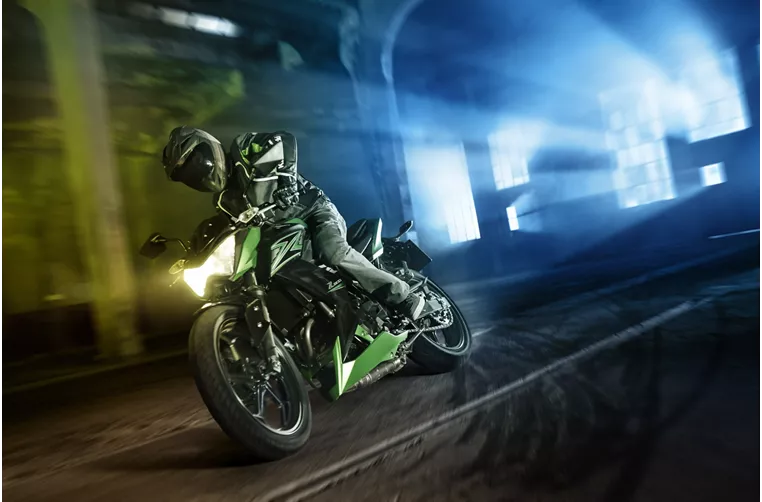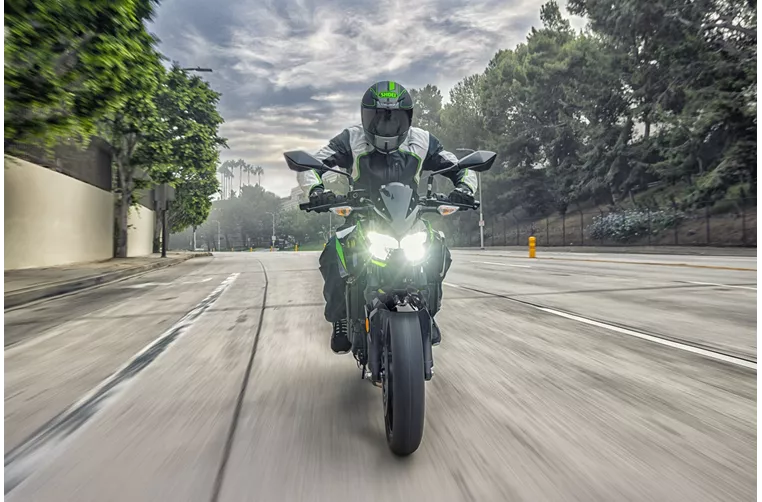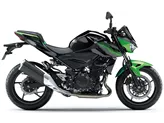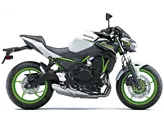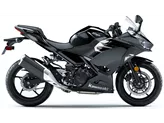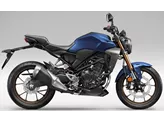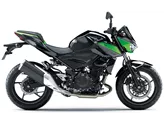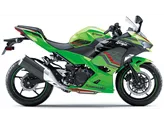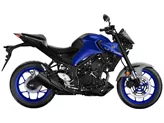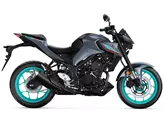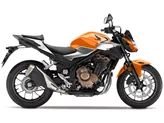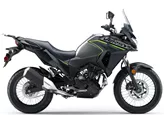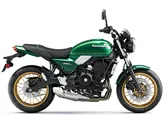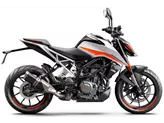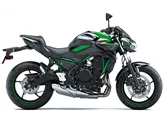Kawasaki Z 300 2015 vs. Kawasaki Z 400 2023
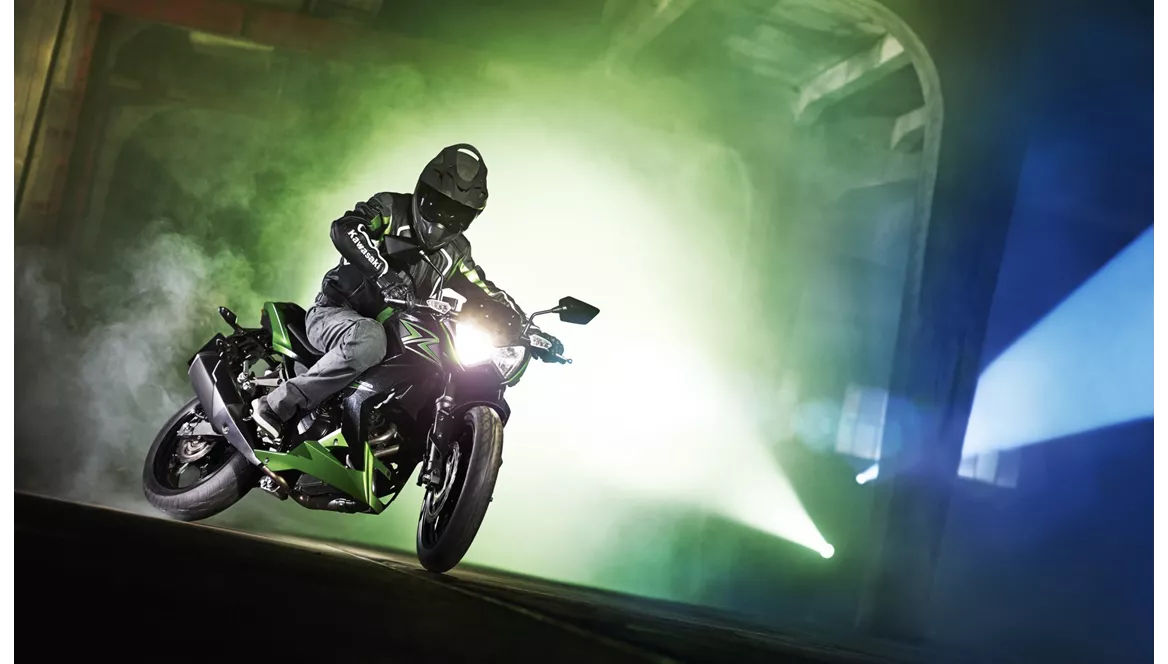
Kawasaki Z 300 2015
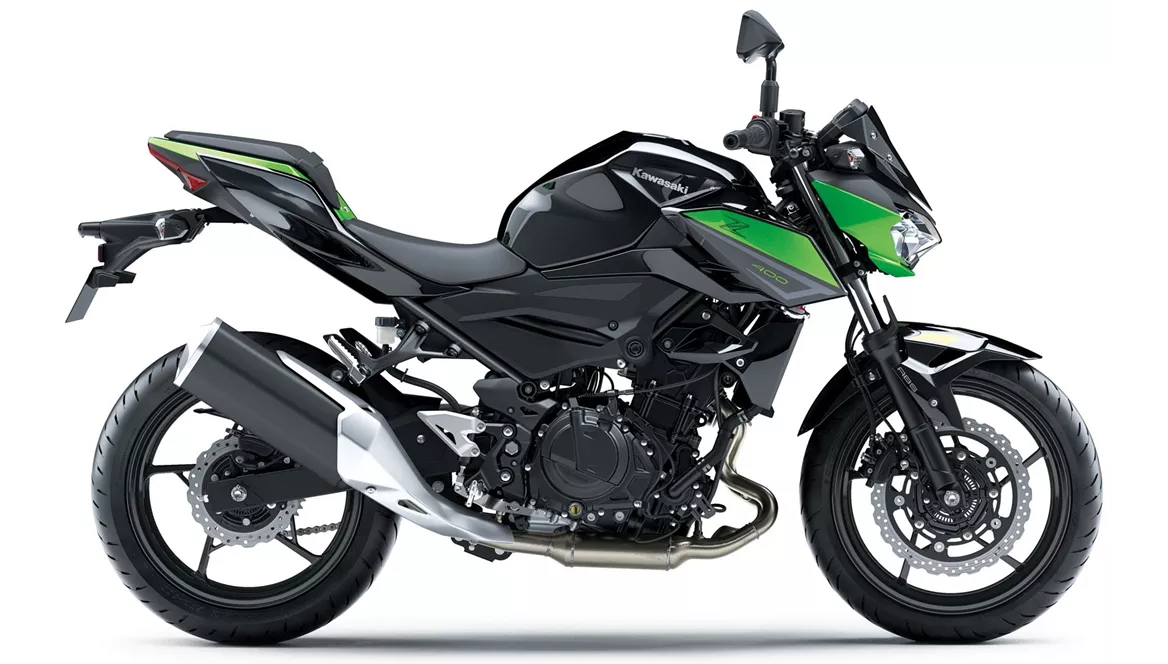
Kawasaki Z 400 2023
Overview - Kawasaki Z 300 2015 vs Kawasaki Z 400 2023
The Kawasaki Z 300 model year 2015 and the Kawasaki Z 400 model year 2023 are both naked bikes with similar technical specifications. However, there are some notable differences between the two models.
In terms of engine performance, the Kawasaki Z 300 2015 is equipped with an inline, liquid-cooled engine with a displacement of 296cc. It produces 39 horsepower and 27 Nm of torque. On the other hand, the Kawasaki Z 400 2023 also features an inline, liquid-cooled engine but with a larger displacement of 399cc. This engine delivers 45 horsepower and 37 Nm of torque. Therefore, the Z 400 offers more power and torque compared to the Z 300.
Both models have a steel frame and double piston front brakes with petal technology. This ensures stability and reliable braking performance for both bikes. Additionally, they both have the same front tire width of 110mm and front tire diameter of 17 inches. However, there are differences in the rear tire dimensions. The Z 300 has a rear tire width of 140mm and a rear tire diameter of 17 inches, while the Z 400 has a wider rear tire with a width of 150mm and the same rear tire diameter of 17 inches.
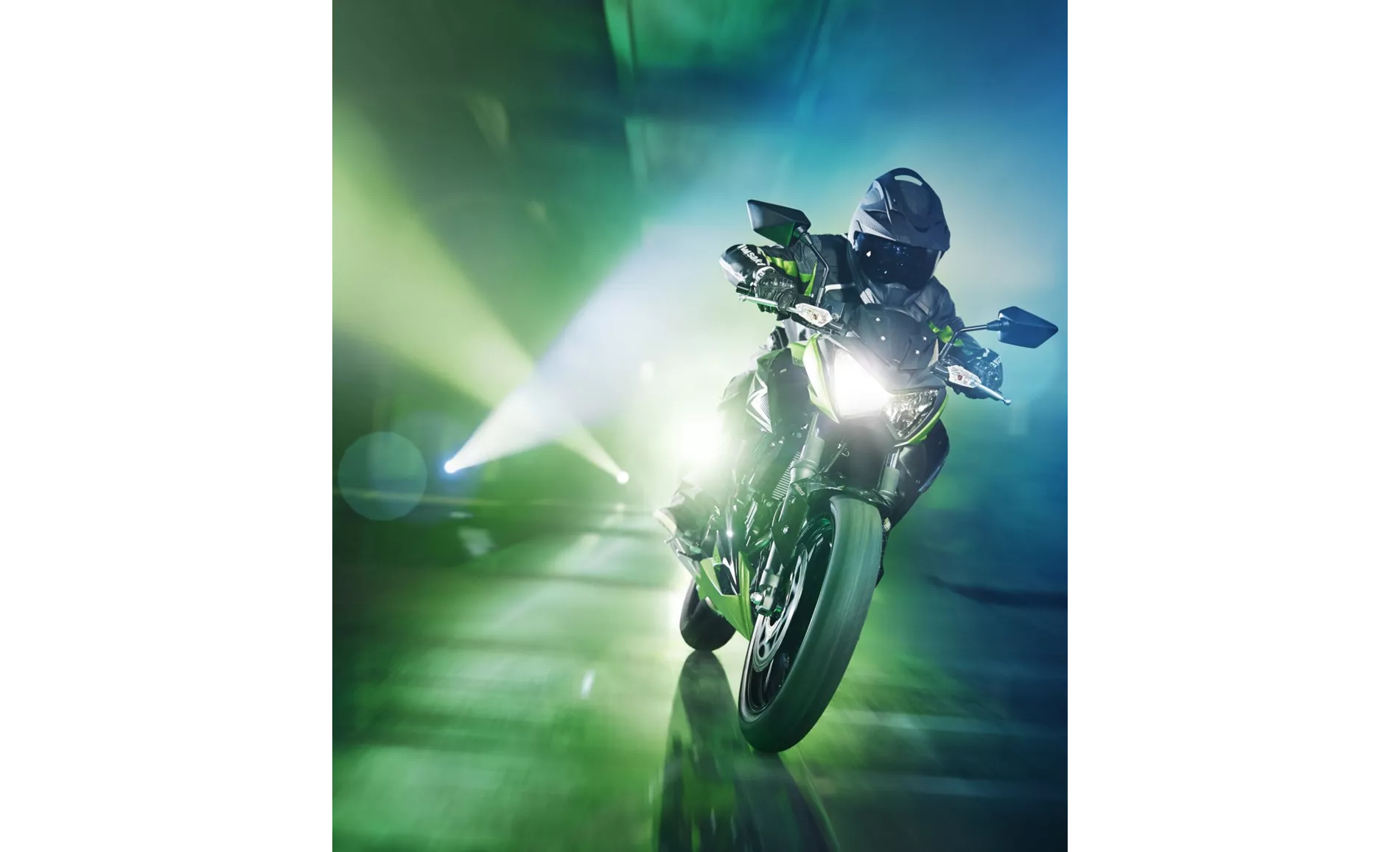
Kawasaki Z 300 2015
In terms of dimensions and weights, the Z 300 has a wheelbase of 1405mm, while the Z 400 has a slightly shorter wheelbase of 1370mm. Both models have the same seat height of 785mm. However, there is a difference in the kerb weight. The Z 300 weighs 170kg with ABS, while the Z 400 is slightly lighter at 167kg with ABS. Additionally, the Z 300 has a larger fuel tank capacity of 17 liters, whereas the Z 400 has a smaller fuel tank capacity of 14 liters.
Moving on to the strengths of each model, the Kawasaki Z 300 2015 has an adult look with a high-quality finish. It also features a high-revving engine, comfortable seating position, stable brakes, and an easy-to-read, complete cockpit. Furthermore, it boasts low fuel consumption, making it an economical choice.
On the other hand, the Kawasaki Z 400 2023 has a lively engine that offers more power and torque compared to the Z 300. It also has a good chassis and brakes, providing excellent handling. The Z 400 has a grown-up look with high-quality workmanship, adding to its appeal.
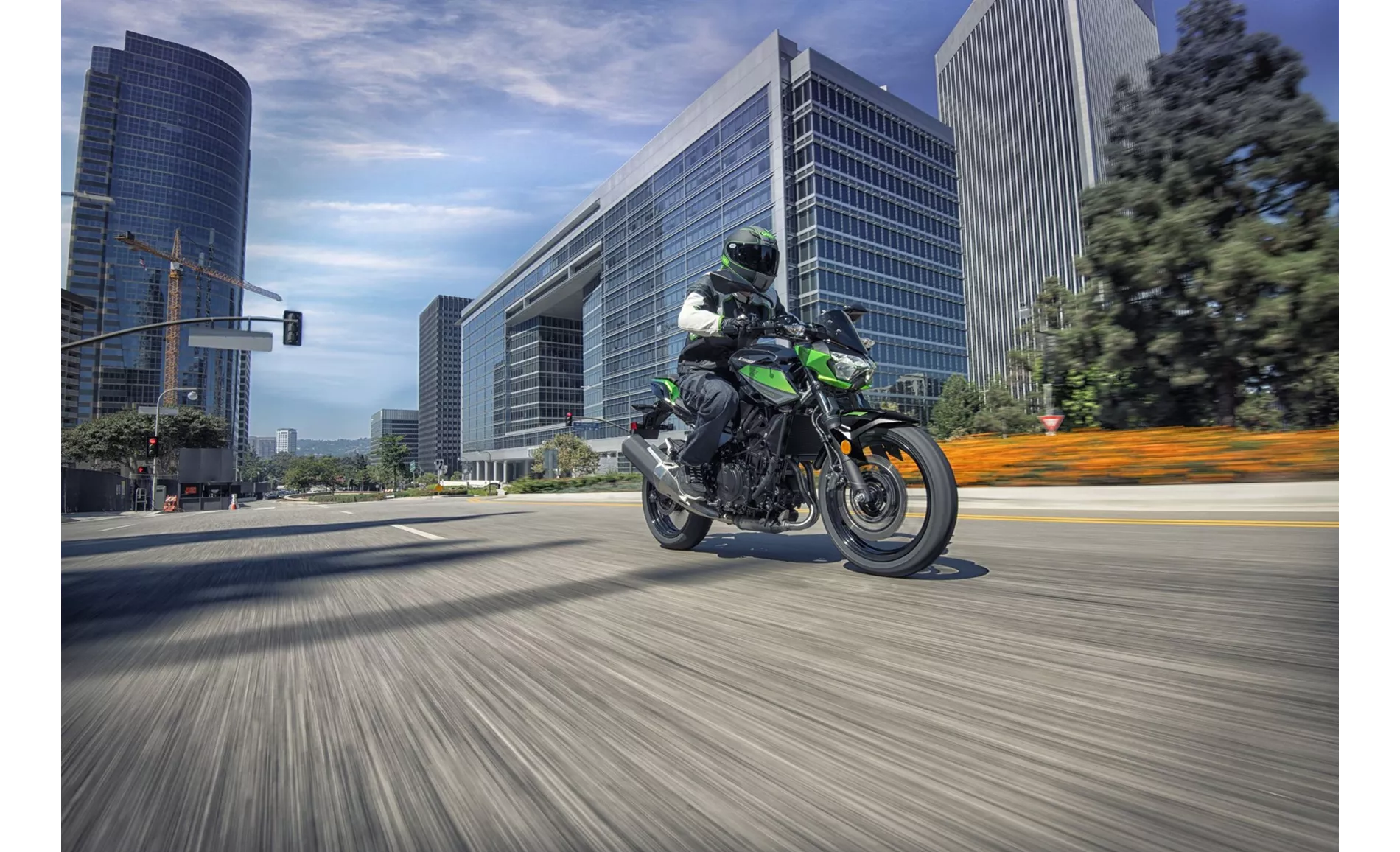
Kawasaki Z 400 2023
However, there are some weaknesses to consider. The Z 300 has a very unobtrusive sound, which may not appeal to riders looking for a more aggressive exhaust note. Additionally, its chassis components are considered favorable, but the engine only starts when idling, which may be inconvenient for some riders.
As for the Z 400, its only weakness is the non-adjustable levers, which may limit customization options for riders who prefer adjustable controls.
In conclusion, the Kawasaki Z 400 2023 offers more power and torque compared to the Z 300 2015. It also has a slightly lighter weight and a smaller fuel tank capacity. Both models have their strengths and weaknesses, but ultimately, the choice between the two will depend on the rider's preferences and priorities.
Technical Specifications Kawasaki Z 300 2015 compared to Kawasaki Z 400 2023
Pros and Cons in comparison
Pros and Cons in comparison
Kawasaki Z 300 2015
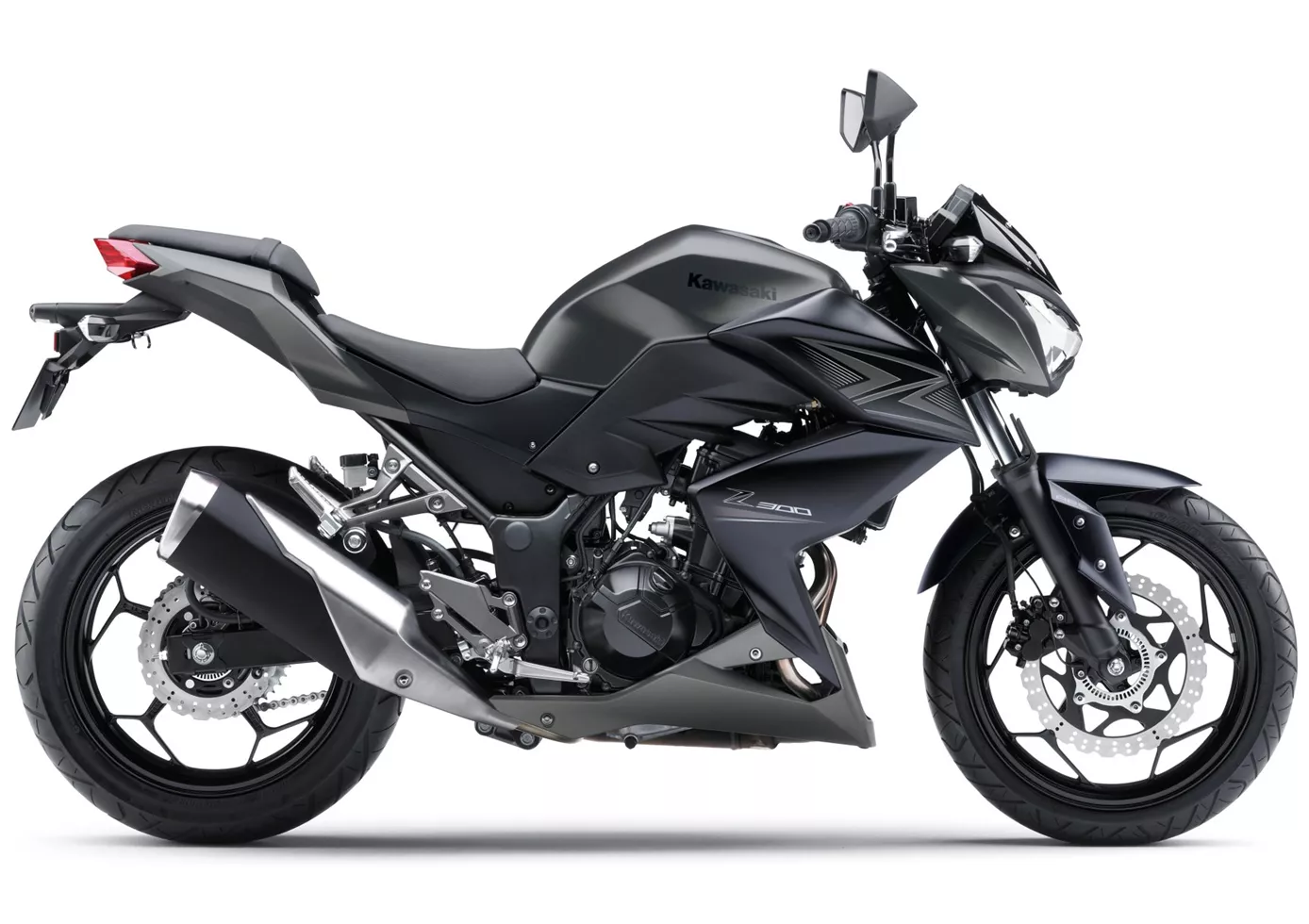
The cool design of the Kawasaki Z300, which is extremely similar to that of its big sister Z800, makes it a very grown-up-looking motorbike. The stable braking system and the easy-to-read cockpit with an analogue rev counter and all the necessary features fit in very well with this image. Thanks to the 170 kg ready-to-ride weight, the bike is extremely easy to handle and playful. The engine only reveals its potential in the upper rev range, but revs up willingly and makes you want to ride in a sporty manner. Only the comfort-oriented chassis cannot quite cope with radically sporty demands - but this is quite legitimate and understandable for an entry-level motorbike.
Kawasaki Z 400 2023
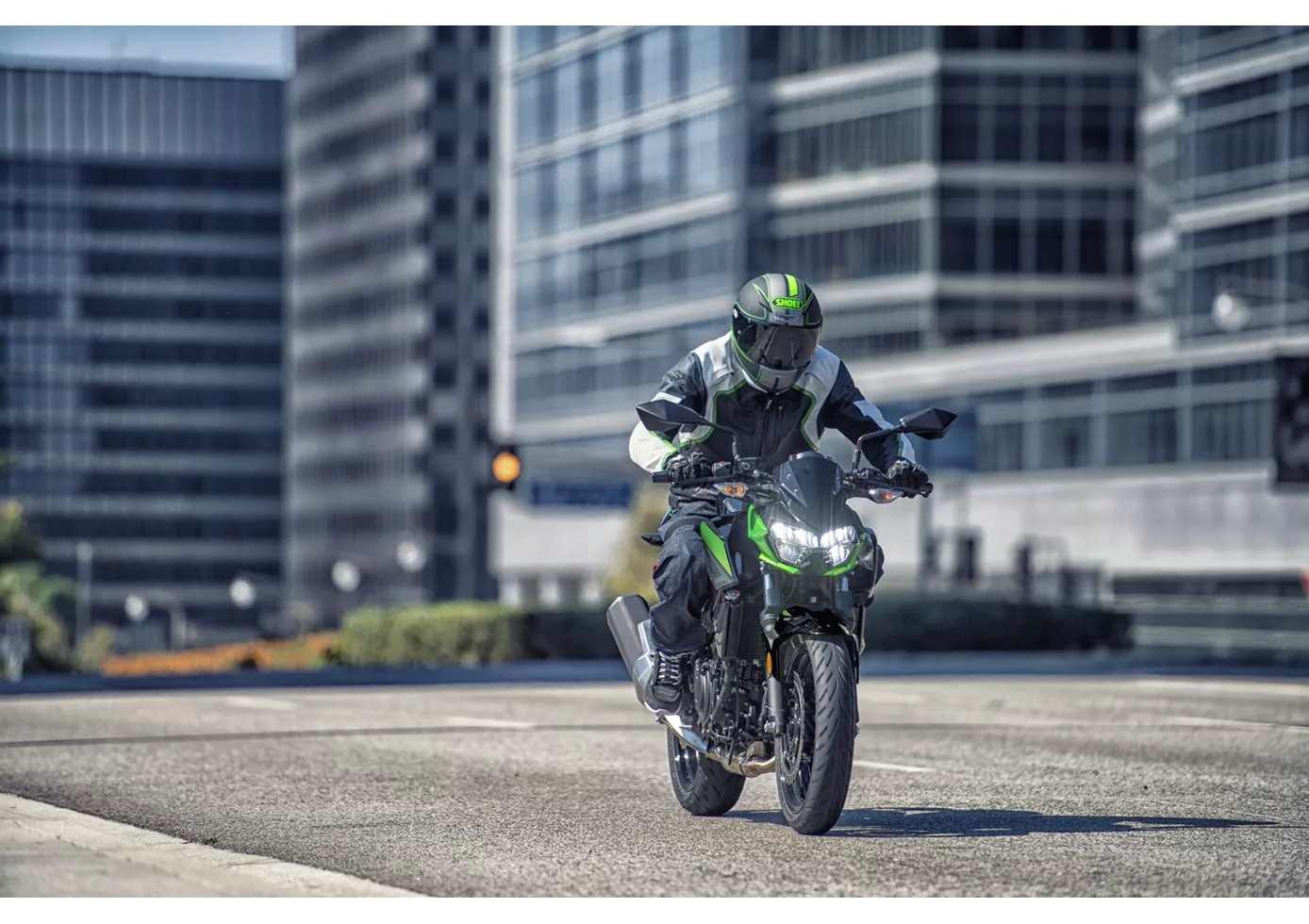
A cool and sensible entry into the A2 class. The Kawasaki Z400 scores points all along the line with its instinctive handling and the in-line two-cylinder, which convinces with good response and sufficient power. You can't go wrong with this naked bike and you can overlook the fact that the levers are not adjustable - after all, costs have to be saved somewhere.
Price Comparison Avarage Market Price Kawasaki Z 300 vs Kawasaki Z 400
There are a few key differences between a Kawasaki Z 300 2015 and a Kawasaki Z 400 2023. It takes less time to sell a Kawasaki Z 300 with 111 days compared to 123 days for a Kawasaki Z 400. Since model year 2015 1000PS.de editors have written 5 reviews for the Kawasaki Z 300 and 8 reviews for the Kawasaki Z 400 since model year 2019. The first review for the Kawasaki Z 300 was published on 04/11/2014 and now has more than 59,800 views. This compares to more than 23,200 views for the first review on Kawasaki Z 400 published on 02/10/2018.
